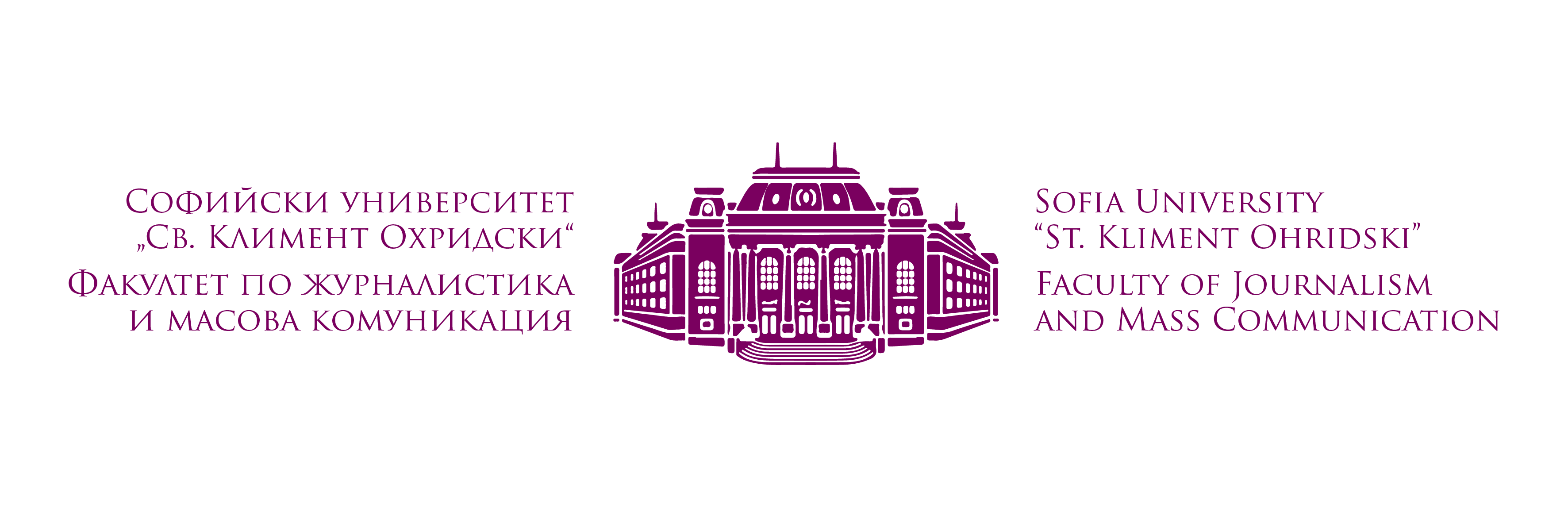Description
The project on "Transformation and convergent models of journalism in the process of digitalization, in the digital society and in the digital communication context: dispositional analysis" is funded by the "Fundamental Research Contest - 2022" of the Scientific Research Fund at the Ministry of Education and Science (contract No. KP-06-H65/9 of 12.12.2022). The project leader is Prof. Dr. Nikolay Mihailov. The activities are carried out in partnership with the University of Veliko Tarnovo "Sv.
Project Website
Team:
- Prof. Dr. Nikolay Mihaylov - Head;
- Prof. Dr. Veselina Valkanova;
- Prof. Dr. Sonia Karabelova;
- Prof. Dr. Iliana Pavlova;
- Assoc. Prof. Dr. Kalin Kalinov;
- Assoc. Prof. Dr. Kaloyan Haralampiev;
- Assoc. Prof. Dr. Ivo Injov;
- Asst. prof. Dr. Aneta Milkova;
- Doct. Yotka Pancheva;
- Stud. Iva Ivanova;
- Dr. Tsvetelina Dzhambazova
Characteristics
Partners
Goals
The main objective of the project is to research and develop a convergent model of journalism in the conditions of digitalization, to develop concepts, programs, and strategies providing a new effective approach for the development of research, professional, and educational aspects of journalism. This model will reflect the changes in the digital society in the plan of communication and will be at the level of contemporary knowledge of journalism and communication specialties in Bulgarian and European perspectives. The credibility of the model, as well as of any scientific claim, will be conditioned by the correct application of the research method (dispositional analysis), the conditioning of the logical relationships, and the collection and analysis of the data from the research conducted. Based on these objectives, the main hypothesis of the research team will be proved - the convergence of media, communication technologies, content, etc. as a process of large-scale change in the digital society, affecting the training, activity, and realization of journalists, communication professionals, the impact on the audience, as well as changes in the audience itself.
In pragmatic terms, this means developing a strategic theoretical framework and of specific prescriptions for taking consistent practical steps to implement a convergent model of journalism in a digital environment in which content creators and consumers across different media platforms, media professionals, potential and new audiences, and in general the subjects of media activity, communication education, the media industry, representatives of professional organizations, etc., to function efficiently and effectively and to respond adequately to the challenges of technological change in the field of public communication. The journalistic profession in the broadest sense is facing rapid and profound changes that affect both its intellectual tradition and the professional organizations (the WBJ, the AEJ, the Society of Metropolitan Journalists, etc.) of its members.
The remaining objectives are also aimed at exploring and implementing the whole spectrum of professional, market, non-market, institutional, organizational, and societal mechanisms and measures for the development of journalistic training and the adequacy of media professionals about the changed environment and the new functions of the professional journalist in the contemporary newsroom, making sense of the media industries, as well as the opportunities provided by digital technologies and new media, to increase the interest of awareness and the access of audiences to o
These studies will also focus on the problems and prospects related to increasing the interest of potential audiences and attracting new ones, taking into account the specificities, problems, and prospects for Bulgarian journalists and other actors in the media system and the public communication system.
Opportunities and trends for improving the media and educational infrastructure in terms of public communications and for adapting and applying good European and global practices and innovations in terms of the formation and implementation of communication policies aimed at developing the various aspects of the impact of digital change will be examined, studied, summarized, and the sustainable level of quality media consumption will be ensured.
